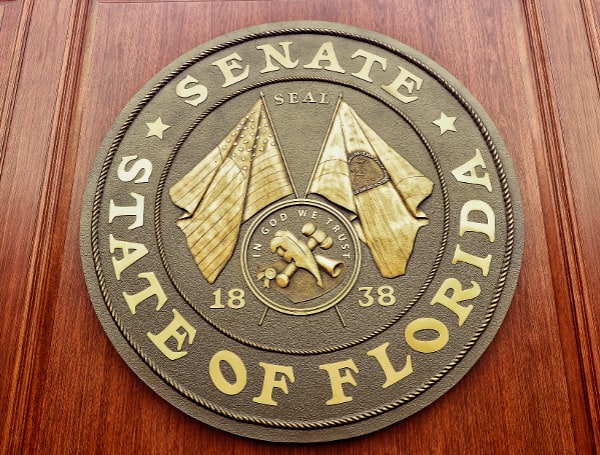With the bill’s sponsor saying that rapidly expanding access to generative artificial intelligence “threatens the integrity of elections,” a bill that would require disclaimers on political ads created by using the technology began advancing Tuesday in the Florida Senate.
“This is something that is very new. This is something that we’ve seen more and more frequently, I think, as the political campaign season has been accelerating here recently,” bill sponsor Nick DiCeglie, R-Indian Rocks Beach, said of the use of artificial intelligence in political ads.
Generative artificial intelligence, or AI, allows users to input prompts to create content that can depict such things as people speaking or taking actions. It has become widely accessible through programs such as ChatGPT, which is limited to generating text.
Read: Florida Gov. DeSantis Bet Big On Iowa, But Trump Still Won By 30 Points. So What Now?
Under the bill (SB 850), political ads or any “miscellaneous advertisement of a political nature” that feature video, audio, text or images created using generative AI would have to include a notice making clear that the technology was involved.
“Created in whole or in part with the use of generative artificial intelligence (AI),” disclaimers would say.
The Republican-controlled Senate Ethics and Elections Committee voted 4-2 along party lines to approve the bill, with Democrats questioning a change that would make violations punishable by first-degree misdemeanor charges. A previous version would have imposed civil penalties if people distribute ads that include AI without including disclaimers.
Sen. Tina Polsky, D-Boca Raton, questioned potentially making such violations a crime.
“Who would be charged? That’s a very important part of this bill. If you’re making it a crime, then, is it the person who created the ad? Is it the candidate? How can a PC (political committee) be charged with a crime?” Polsky asked.
DiCeglie indicated he would answer Polsky’s question outside of the committee meeting. He said the bill is “applicable to the type and purpose of the communication, not the person creating it. So, I can certainly follow up with you on that.”
Read: Florida Gov. Ron DeSantis Takes 2nd Place In Iowa Behind Trump
The bill also would allow people to file complaints with the Florida Elections Commission about alleged violations and would require the commission to adopt rules that would provide for expedited hearings on the complaints.
Polsky also asked about what types of AI use would constitute violations of the measure.
“If I (using AI) put myself next to a very positive figure, but that person hadn’t endorsed me, or likewise if I put in a mailer a picture of you next to a nefarious character and acted as if you guys are in cahoots even if you’re not, would that be a violation of this proposal?” Polsky asked.
DiCeglie indicated that the bill might need more work as it moves through the Legislature.
“If that ad has you standing next to, say, a president, and in fact you did not stand next to that president, I think those are the questions as this bill moves through the process that we can further clarify and answer, really hone in exactly what we want this piece of legislation to do in preparing us as a state to deal with this new technology,” DiCeglie said.
Before voting against the measure, Polsky said it is “not ready yet.”
“I’m very surprised that there’s a crime attached to it, and I think that needs to be cleaned up,” Polsky said.
The bill would need approval from the Senate Rules Committee before it could be considered by the full Senate. A similar measure (HB 919) has been filed in the House.
Android Users, Click To Download The Free Press App And Never Miss A Story. Follow Us On Facebook and Twitter. Sign up for our free newsletter.



